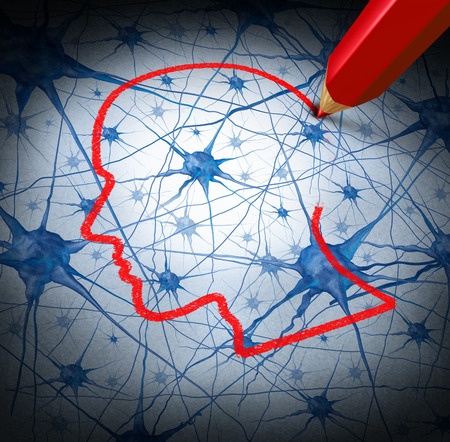The 3 WORST Mistakes You Must AVOID
If You Want To Overcome Shyness
(PLUS: 1 weird trick that targets the root biological cause of shyness
so you can stop being nervous, awkward and quiet around people…)
By Sean Cooper, The Shyness & Social Anxiety Guy
 According to science, it is possible to change the way your brain works, but only up to a certain age.[1]
According to science, it is possible to change the way your brain works, but only up to a certain age.[1]
This is why kids can learn new things very easily, but as people grow older they stop learning and stay the same.[2]
Did you know that most people wait 10 years before looking for a solution to their shyness?[3] And the longer you wait, the older you get, the less your brain is able to learn or change.
The fact that you’re reading this article tells me you may have already reached a point where you feel your shyness is NOT going away on its own… or you fear it’s getting worse and worse. And I don’t want you to waste one more day living a life where you feel left out, bored or depressed because you don’t have the relationships which would make you happy.
That’s why I’ve put together this page to help you avoid the worst mistakes that keep many people stuck with shyness for years… often giving up hope of ever improving as you watch other people have interesting “normal” lives without you. Yet this doesn’t have to happen.
Before I get to the tips, let me ask you a few questions:
- Do you ever get a blank mind around people? This means you don’t know what to say in conversations, even leading to embarrassing awkward silences.
- Do you feel nervous even before you go into a social situation? For example: feeling tense, sweating, shaking, or feeling your heart beating fast before you have to talk in front of a group of people.
- Do you find it hard to talk and connect with new people? This can lead to having not many “real” friends, staying inside your home alone a lot, and being a virgin much longer than normal.
- Do you have imaginary conversations with people in your head? These are often people you’re too scared to talk to in real life.
- Do you often feel very self conscious? This means being insecure about the way you look, or being painfully aware of everything you say and do when you know people are watching.
If you answered YES to some of these questions, then you definitely know how shyness feels like. So what’s the deal? Why do you have all these problems? Is it genetics? A chemical imbalance? Was it the way your parents raised you?
In a minute, I’ll show you what new research reveals is the true biological root cause of your shyness. Once you know what this is, you will also know the only effective treatment that can help you eliminate shyness permanently.
Imagine if you could become relaxed and confident in conversations. What if you never ran out of things to say? What if nobody ever called you “quiet” or “shy” again? Or imagine if you could meet new friends quickly. What if you had friends that invited YOU out on the weekend?
Better yet… Imagine if you could stop feeling awkward and nervous, especially around people you find attractive. What if you knew what to say to someone you liked? What if you could finally speak up at meetings without feeling scared?
As someone who has helped 3000+ people overcome shyness in the past 4 years, I’ve uncovered some little-known tips, tricks and strategies that can help you get the confidence, friends and romance you want. Don’t believe me yet, just read this entire article to the end.
Warning: these tips may go against a lot of the advice you’ve heard before. BUT that’s because most people don’t know the truth about shyness. So here are the 3 WORST mistakes you must AVOID all costs.

Sean Cooper
The Shyness & Social Anxiety Guy
1. You must IGNORE 95% of the articles, books and advice out there.
 The first thing I did when I was ready to get rid of my own shyness was type in “How to overcome shyness” into Google. And I read dozens, maybe hundreds of those articles.
The first thing I did when I was ready to get rid of my own shyness was type in “How to overcome shyness” into Google. And I read dozens, maybe hundreds of those articles.
Unfortunately, the advice you’ll find in most articles online is simply too basic like telling you to:
- “Think about what’s the worst that can happen.”
- “Just focus more on other people.”
- “Fake it ’til you make it!”
- Or even “Just do it!”
They tell you to stop caring what people think, but they never say HOW!! And they never talk about your REAL problems, like not knowing what to say, how to stop looking nervous or how to get a girlfriend.
And even the BOOKS about shyness weren’t much better.
The authors usually spent a hundred useless pages talking about the background psychology of shyness. And when it came to how to actually cure it… they just said to take small steps and write down your thoughts to see if they are negative.
Great, thanks modern psychology.
After a few weeks of reading the same unrealistic, unclear and common advice repeated over and over again, I came to a shocking conclusion:
The people who write these articles and books never had shyness themselves.
And someone who has never had our problem cannot KNOW which advice works and which doesn’t. All they can do is repeat what they read in some other self help book. It’s usually advice that sounds good on paper, but doesn’t actually help because it’s too simple.
So it’s really not your fault that all the shyness tips or advice you’ve heard up until now have not helped you. (If they had, then you wouldn’t be reading this article, would you?) The real problem is all those so-called writers and “experts” who only care about their next pay check, not if their advice works in real life.
That brings me to the 2nd tip…
References:
- Goh, Joshua O., and Denise C. Park. “Neuroplasticity and Cognitive Aging: The Scaffolding Theory of Aging and Cognition.” Restorative Neurology and Neuroscience 27.5 (2009): 391–403. Web. 15 Feb. 2015.
- “Why We Stop Learning: The Paradox of Expertise.” Psychology Today. N.p., n.d. Web. 15 Feb. 2015.
- ADAA – Anxiety & Depression Association of America. (n.d.). Social Anxiety Disorder. Retrieved from http://www.adaa.org/understanding-anxiety/social-anxiety-disorder
